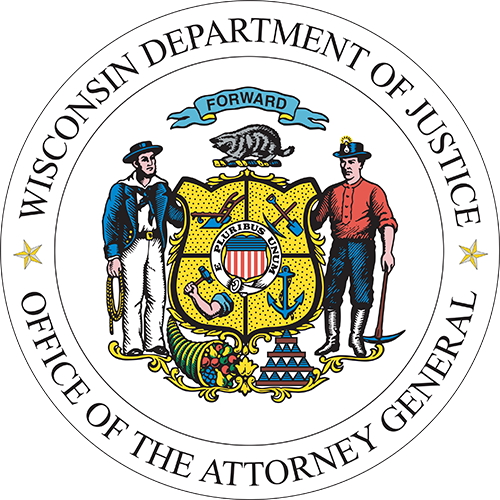AG Kaul Calls on EPA to Strengthen Protections Against Childhood Lead Poisoning
March 17, 2022
MADISON, Wis. – Attorney General Josh Kaul today joined a coalition of 19 state attorneys general in calling on the United States Environmental Protection Agency (EPA) to strengthen protections against lead poisoning, particularly for children living in low-income communities and communities of color. In comments on the EPA’s “Draft Strategy to Reduce Lead Exposures and Disparities in U.S. Communities,” the coalition called the draft strategy a “strong starting point.” However, the coalition lays out specific recommendations for how EPA should bolster the plan to more aggressively and comprehensively combat the many ways in which children are exposed to lead.
Lead is a highly toxic metal that can cause serious and irreversible adverse health effects. The Centers for Disease Control estimates that children in at least 4 million households nationwide are exposed to high levels of lead. A 2021 study published in the Journal of the American Medical Association Pediatrics suggested that more than half of all U.S. children have detectable levels of lead in their blood. That study also found that elevated blood lead levels in children were closely related to poverty, race, and living in older housing.
Children who have been exposed to even very low levels of lead are at risk for neurological and physical problems during critical stages of early development. In fact, no safe lead level in children has been identified. Children under the age of 6 are more likely to be exposed to lead than any other age group, as their normal behaviors could result in them chewing lead paint chips; breathing in or swallowing dust from old lead paint that gets on floors, window sills, and hands; and lead can be found in soil, foods eaten by children, and other consumer products.
In their comments, the coalition credits the EPA’s Draft Lead Strategy for identifying government-led approaches to increasing public health protections, addressing legacy lead contamination for communities with the greatest exposures, and promoting environmental justice. However, the coalition’s comments identify numerous other measures necessary to strengthen the Strategy by aggressively targeting hazards posed by lead in paint, drinking water, soils, aviation fuel, air, food, and through occupational and take-home exposures. These include:
- Increasing resources for the enforcement of existing laws relating to lead paint in rental housing and amending existing regulations to require landlords to increase the frequency of inspections of houses with a history of lead paint hazards;
- Developing proactive policies and standards for hazardous waste sites, drinking water, and other sources of lead exposure that are more protective of health and designed to reduce lead poisoning;
- Developing aggressive deadlines for tightening standards, developing enforcement policies, and conducting an endangerment determination for lead in aviation gas under the Clean Air Act;
- Identifying meaningful environmental justice targets to ensure that the communities most in need and the vulnerable are protected;
- Encouraging inter-agency collaboration and data-sharing with other federal agencies such as HUD, OSHA, FAA, FDA, and USDA;
- Pledging allocations of federal funds to replace drinking water service lines containing lead that reach struggling and historically marginalized communities;
- Adopting federal regulations requiring testing of water and remediation of lead service lines and lead plumbing fixtures in public, charter, and private schools, and in childcare centers;
- Expanding multi-language informational campaigns and blood lead testing programs to address “take-home lead” exposure — lead from work that accumulates on a worker’s clothing and shoes; and
- Developing other specific metrics for achieving and evaluating success in lead reduction.
Joining Attorney General Kaul in submitting the comments are the attorneys general of New York, California, Connecticut, Delaware, Hawaii, Illinois Maine, Maryland, Massachusetts, Minnesota, New Jersey, New Mexico, North Carolina, Oregon, Pennsylvania, Rhode Island, Vermont, and the District of Columbia.
Press Release: doj.state.wi.us/news-releases/ag-kaul-calls-epa-strengthen-protections-against-childhood-lead-poisoning
NOTE: This press release was submitted to Urban Milwaukee and was not written by an Urban Milwaukee writer. While it is believed to be reliable, Urban Milwaukee does not guarantee its accuracy or completeness.
More about the Lead Crisis
- Rep. Madison Proposes Restoring Local Control Over Lead Inspections - State Rep. Darrin Madison - Jan 6th, 2026
- $43 Million Later, MPS Says Classrooms Are Safe From Lead Dust - Corrinne Hess - Dec 18th, 2025
- MPS Buildings Cleared of Lead-Paint Risks after 10-Plus Months of Work - Milwaukee Public Schools - Dec 17th, 2025
- Wisconsin Moves to Require Lead Service Lines Replaced By 2037 - Danielle Kaeding - Dec 11th, 2025
- Gov. Evers, DNR Announce More Than $159 Million to Ensure Clean, Safe Drinking Water for Wisconsinites in 29 Municipalities - Gov. Tony Evers - Dec 10th, 2025
- EPA Announces $3 Billion in New Funding for States to Reduce Lead in Drinking Water - U.S. Environmental Protection Agency - Nov 25th, 2025
- Wisconsin Communities Get $282 Million for Drinking Water Projects - Danielle Kaeding - Nov 19th, 2025
- MKE County: County Launches Lead Abatement Program - Graham Kilmer - Nov 9th, 2025
- Milwaukee County Launches Lead Remediation Program to Reduce Lead-Based Paint Hazards in Homes in Suburban Communities - David Crowley - Nov 5th, 2025
- Wisconsin Improves Child Lead Testing Rates, Urges Continued Testing and At-Home Prevention - Wisconsin Department of Health Services - Oct 21st, 2025
Read more about Lead Crisis here






















